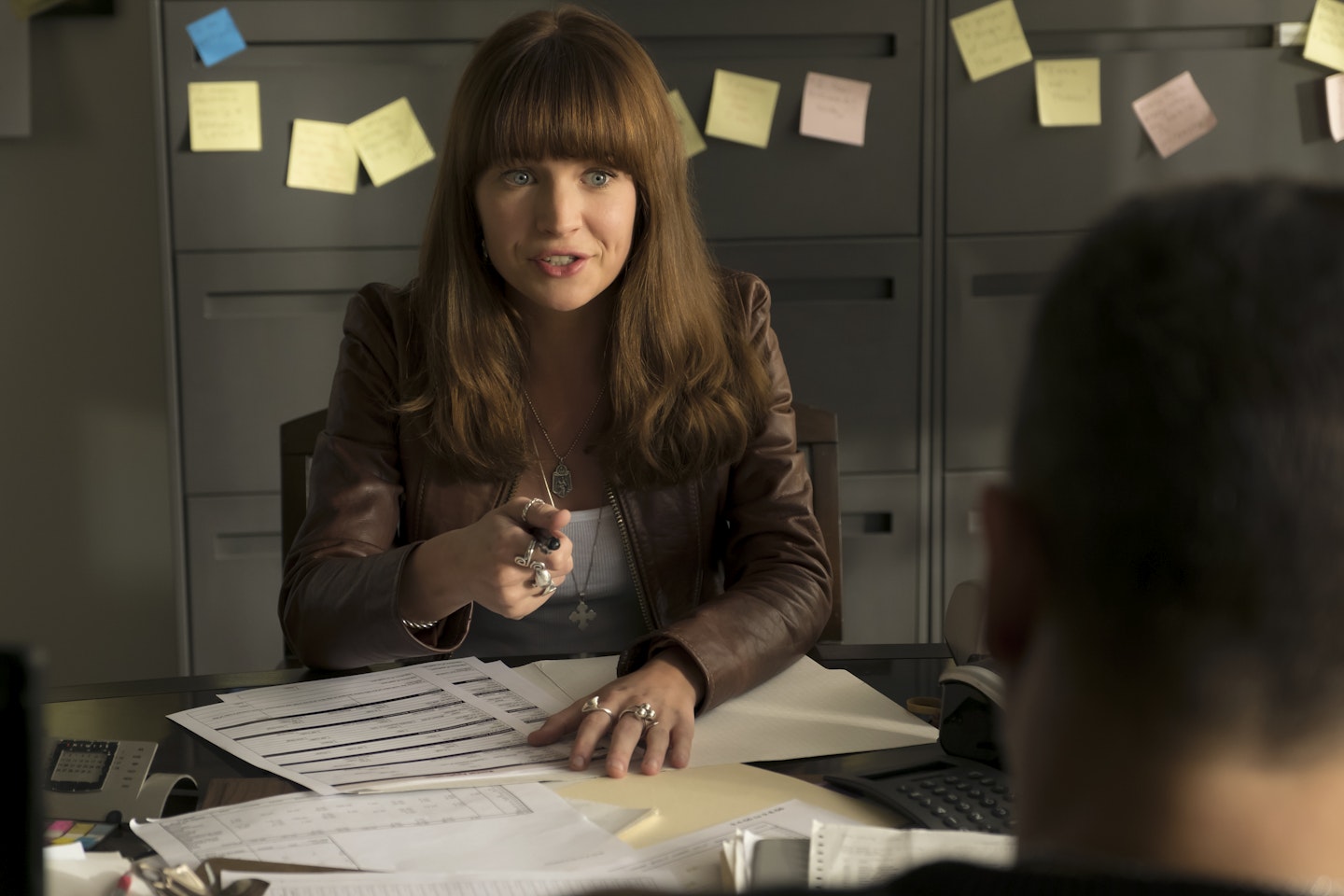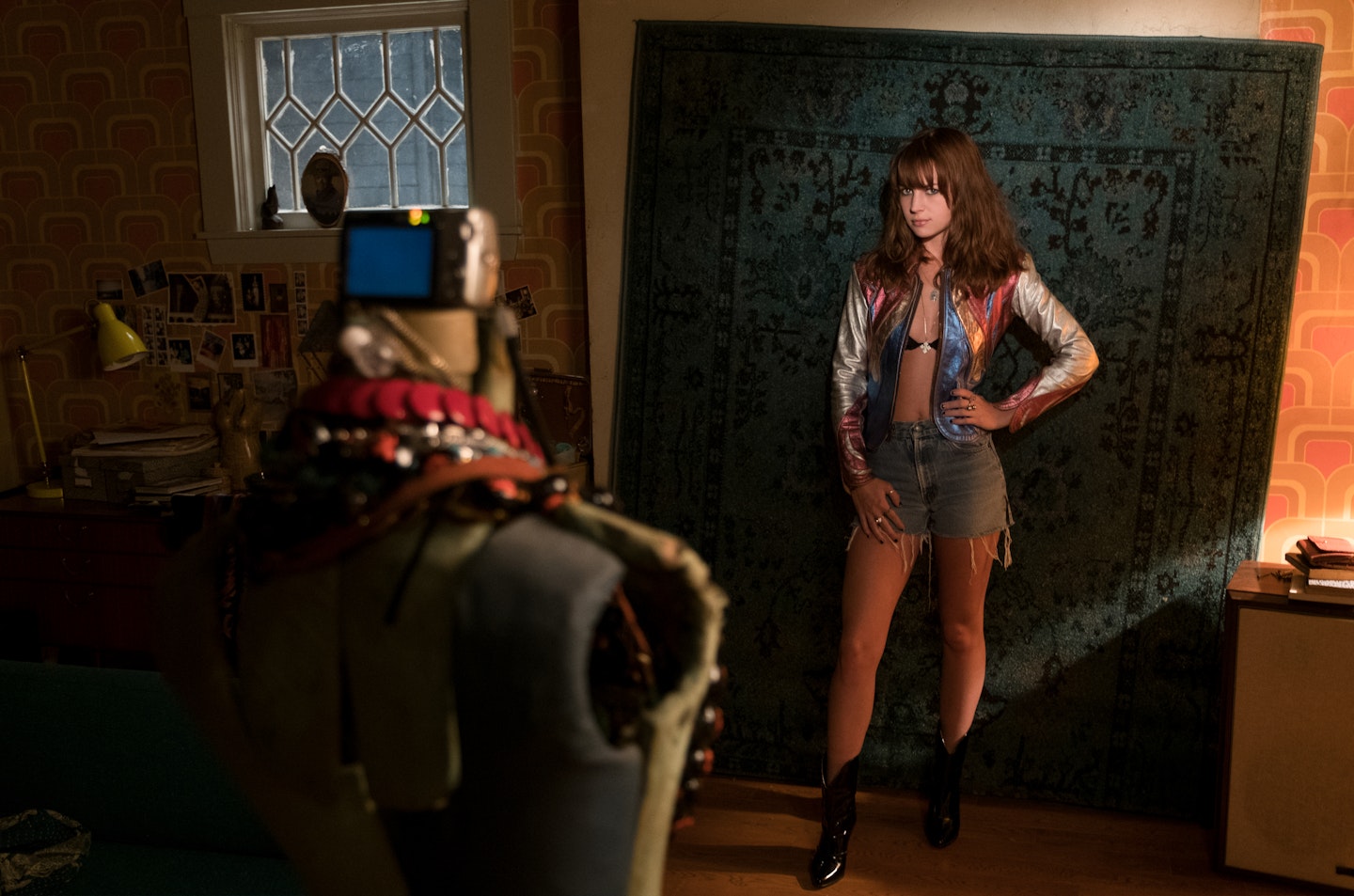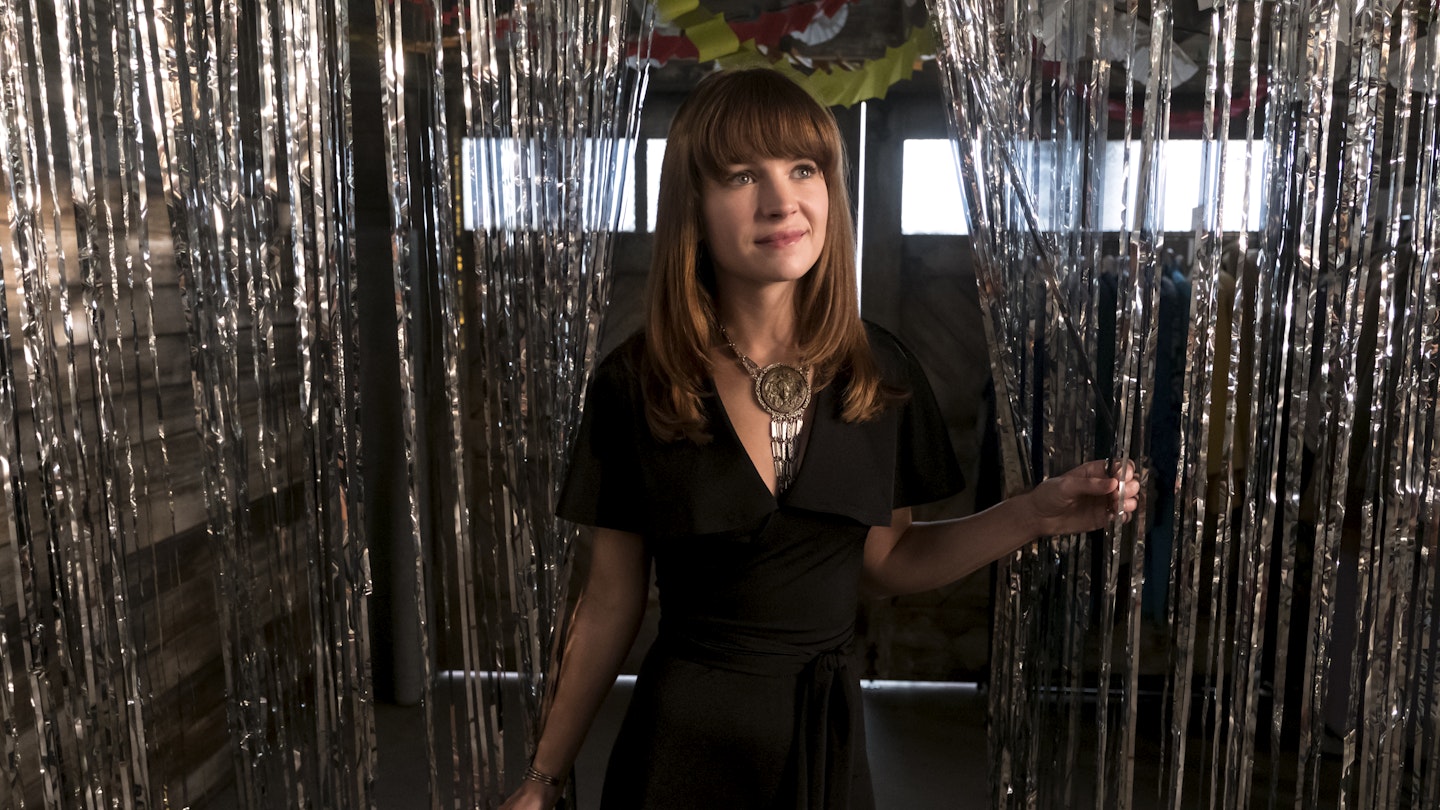Netflix's latest original drama Girlboss only arrived online a few days ago, but it's already proved to be the televisual equivalent of Marmite. Sophia, Britt Robertson's fast-talking, so-laid-back-she's horizontal lead - who's also an on-screen stand-in for real-life Nasty Gal founder Sophia Amoruso - has charmed some viewers with her unorthodox journey to the top of the fashion industry (and her modern-vintage style). For others, she's utterly infuriating, a self-entitled monster stitched together from every millennial stereotype you've ever heard.
In interests of balance, you'll find two Grazia writers making the case for and against Girlboss below. Queue up a playlist of your best mid-noughties indie and enjoy...
The case for Girlboss, by Emma Firth

I’ve been in a TV slump of late. Truth be told, Post-Broadchurch, I just need something to cheer me up. I haven’t read any of the reviews yet (I hear from my colleagues some are not so glowing though), but regardless, I will not be swayed… I love Girlboss.
Like Stranger Things (another Netflix favourite of mine) the soundtrack is badass - think scenes head banging in a beaten-up car to Suzi Quatro ‘The Wild One’ and the nostalgic pull of the Yeah Yeah Yeahs. It’s relatable for millennials across the land – depicting the age-old dilemma of being in your 20s and having no money, a real fear of disappointing your parents and the often-tiring quest to Find Yourself / Career / Love in the big bad world. Yes, we hear you, this sounds like an awfully familiar format – cue the ‘It’s just like Girls’ comparisons.
But it would be a disservice to liken it to Lena Dunham’s show - a show that was essentially a re-imagining of Sex and the City for modern times, and at its core focused on female friendship. Make no mistake, while there are some great and LOL cameos in Girlboss (Ru Paul and a vintage store owner played by Jim Rash standing out for me), Britt Robertson is the main star as Nasty Gal founder Sophia Amoruso. It’s her story – as the title would suggest. She’s not perfect, but who is really? Sure, this show isn’t for everyone, but if you’re after a feel-good 30 minutes, a heavy dose of vintage fashion inspiration and motivation to get s--t done, it’s definitely worth a stream.
The case against Girlboss, by Katie Rosseinsky

Within the first five minutes of Girlboss, Netflix’s new drama that’s based - ‘real loose’ - on the 2014 memoir-manifesto of Nasty Gal founder Sophia Amoruso, on-screen Sophia (her surname is Marlowe, not Amoruso, because this #Girlboss adaptation is so #loose, keep up) is staring at the camera, holding forth on how totally unfair her life is. ‘Society just wants to put everyone in a box,’ she says. ‘Well, guess what, society - there is no box! I mean, if I thought the rest of my life would be spent as a mindless cog in a machine, I swear, I’d just get a tattoo across my face that says “Really, man?”’
At this point, we’re probably meant to punch the air with an ‘Amen, man!’ (warning: Sophia says ‘man’ and ‘dude’ a lot, because if you don’t talk like you’re a background character in Wayne’s World, you’re probably a total conformist and thus #notagirlboss…) But as we jump from cliché to cliché, there’s something about Sophia’s manifesto that doesn’t ring true. It’s all empty posturing, the sort of thing that might sound very important when written in the pages of a teenage diaries but is cringe-inducing when delivered by an adult – and, like Girlboss the show, it’s all style and zero substance. Then, an old lady sat alongside Sophia cuts in with ‘it’s hard to believe you’re the future. Thank God I’ll be dead’ before administering an ‘old school slap.’ This walk-on #Granboss (a Nasty OAP?) immediately becomes about 5,000 times more interesting than our protagonist.
Things don’t get much better from here: in the first episode alone, Sophia steals and eats her boss’s sandwich then moans after getting fired from her job for being an unprofessional mess, shoplifts a rug from an unassuming street vendor and moans about the possibility of having to ask her rich father to bail her out for rent. She’s woe in a heavily-marked up vintage leather jacket - and she’s an utter nightmare.

That’s not to say that the women we see on screen should always be ‘likable’ – for a masterclass in the contrary, see Phoebe Waller-Bridge’s Fleabag. But Sophia is so tediously one-dimensional in her ‘rebellion’ – which extends to having a poor work ethic, stealing her boyfriend’s chips, being casually rude to everyone that doesn’t share her ‘girlboss’ mentality and yet more petty theft – that it’s very hard to be on her side. She’s the ‘cool girl’ writ large – but her contempt for everything and everyone will be anathema to the majority of millennials (who have been and are still prepared to work hard for something they care about). Unlike better, more nuanced shows that have tackled entitlement culture and millennial stereotypes – Girls, Crazy Ex-Girlfriend – the only irony you’ll find here is in some of the fashion statements.
Maybe if this show had aired 10, even five years ago, it might have had a fighting chance – though as it stands, the mid-aughts nostalgia and soundtrack is the only thing that Girlboss has going for it. Throw in allegations about the real-life Nasty Gal’s business practices (a cursory search will bring you to a 2015 Jezebel piece that lays them out in full) and the whole thing doesn’t just feel cringe-inducing, but downright uncomfortable. Just because a TV show has a female lead and the word ‘boss’ in the title doesn’t make it a feminist statement…
